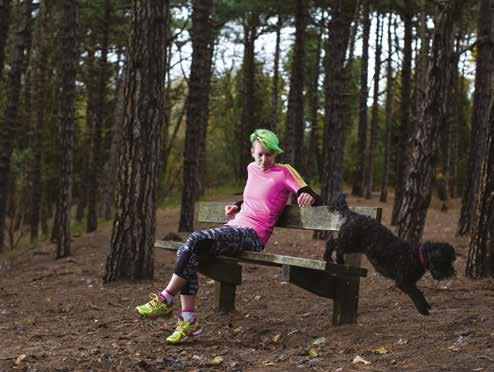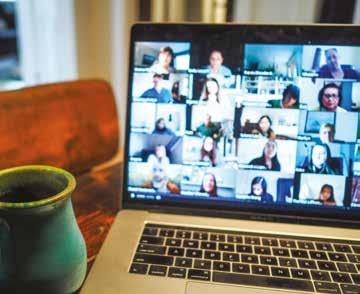
3 minute read
HUB OF HOPE
We’ve all felt the pain of isolation during the Covid-19 pandemic. For someone with a personality disorder it can be tenfold. When lockdown came Helen Underwood knew there could be issues.
Helen is day service lead for the personality disorder hub run by Mersey Care in the coastal town of Waterloo. A safe, reassuring environment for people who often don’t have a strong social network.
Advertisement
She explains: Our service users often find it challenging to forge relationships. They often encounter difficulties managing their emotions, which leaves them susceptible to people taking advantage. The hub provides a safe haven, seven days a week, including a crisis service. “A lot of people rely on the hub for support, so when we closed the doors we knew we’d have to work quickly to stay in touch.”
The hub provides a safe haven, seven days a week, including a crisis service. The team called for tech savvy volunteers to help set up a virtual Hub.
Service users played a major role in designing the hub and are heavily involved in service developments. The team called for tech savvy volunteers to help set up a virtual hub.
And they did. The hub Facebook group, previously used solely for service messages was developed into a live group allowing staff to check on people’s emotional wellbeing. Skype and Zoom quickly followed.
What happened next couldn’t have been predicted. Only around 20 of the 150 service users on the books usually kept in touch outside of appointments. Within a week check in meetings were attracting 60 or more people daily. “It was incredible to watch,” said Helen. People who had never actively engaged were chatting openly to complete strangers and looking relaxed.

Helen Underwood, day service lead
“Some people live the other side of the city, so distance may have stopped them coming to groups, but now they could get involved from the comfort of their own home. It was incredible to see more coming on each week with ideas to recreate our sessions and groups.”
There are film nights, a healthy eating group and a quiz run by a service user who had never previously become involved in group sessions. Since social distancing has relaxed service users are reaching out, meeting in small groups in open spaces where they live.
Hub staff have worked tirelessly to continue to develop the service. The much valued crisis and day service is offered online, including weekends. Psychology assistants have helped to develop an online emotional coping skills group. Distraction activity packs are posted out to people who don’t use technology.
Helen says there’s a massive sense of relief. “People thought we were going to close.
It’s been challenging, none of the team is particularly tech minded, so we’ve had our ups and downs, but feedback has been amazing. It’s really helped our therapeutic relationships. I think the service users can see how hard we’re trying to give them the service they had before.”
Service user Michelle agrees.
“They’ve taught me to cope with life; we all look out for each other so it was difficult to think I’d lose contact with them. It’s been really good. There’s a check in every day. I live alone so it’s something to get up for.

Tashi Thornley, service user and governor

The best thing is being able to see people. You don’t have to talk, whoever wants to talk can. They give us tips on how to cope with overwhelming emotions. They could see one day that my dishes were piling up and they made me get dressed and clean up. The staff always maintain a good sense of humour. You forget that they’re in the same position. Everyone has done so much.”
NEED SUPPORT?
Help yourself – our self help guide on stress can be read online, downloaded or watched as a video.
STRESS Support for you
“It’s changed things a lot. Distance doesn’t matter any more; it’s made things more open. We have our business meetings on Skype. I was wary, it had the potential to go wrong.
We have a strict behavioural policy so as not to trigger anyone’s anxiety. There were people on who didn’t know each other, but everyone is respectful. I really hope when the Hub reopens we carry on with virtual…”










